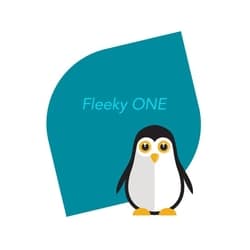
Empowering Collaboration and Copyright Protection
Creative Commons licenses offer a flexible and accessible framework for creators to protect their works while granting permissions for others to use, share, and build upon their creative endeavors. In this article, we delve into the world of Creative Commons licenses, exploring their benefits, types, and the ways in which they foster collaboration and copyright protection.
Understanding Creative Commons Licenses
Creative Commons licenses are a set of standardized licenses that provide creators with a simple and efficient way to manage the permissions and restrictions for their creative works. These licenses are built on copyright law principles while offering a more flexible approach to sharing intellectual property.
Benefits of Creative Commons Licenses
Flexibility
Creative Commons licenses provide creators with the ability to tailor permissions to suit their preferences. Creators can choose from a range of license options, allowing them to decide whether commercial use, modifications, or sharing of derivative works are permitted.
Collaboration and Building upon Works
Creative Commons licenses promote collaboration and creativity by granting permissions for others to use and build upon the original works. This encourages the creation of new works, remixes, and adaptations, fostering a culture of innovation and shared knowledge.
Greater Exposure
By allowing others to use their works under Creative Commons licenses, creators can gain wider exposure and reach new audiences. This exposure can lead to opportunities for collaboration, recognition, and career advancement.
Types of Creative Commons Licenses
Creative Commons licenses offer a range of options that provide varying degrees of permissions and restrictions. The main types include:
Attribution (CC BY)
This license allows others to distribute, remix, adapt, and build upon the original work, even for commercial purposes, as long as proper attribution is given to the creator.
Attribution-ShareAlike (CC BY-SA)
This license permits remixing, adaptation, and commercial use of the original work, as long as any derivative works are shared under the same license.
Attribution-NonCommercial (CC BY-NC)
This license allows others to remix, adapt, and build upon the original work for non-commercial purposes, with proper attribution to the creator.
Attribution-NoDerivatives (CC BY-ND)
This license permits others to distribute the original work, but they cannot remix, adapt, or modify it in any way. Proper attribution is still required.
Implementing Creative Commons Licenses
License Selection
As a creator, choose the Creative Commons license that aligns with your desired permissions and restrictions. Consider the goals and nature of your work when making this selection.
License Integration
Clearly indicate the selected Creative Commons license on your works. This can be achieved by adding the license icon, license text, and a link to the license terms on your website, in metadata, or alongside the work itself.
Understanding License Compatibility
Ensure that you understand how different Creative Commons licenses interact with one another to avoid conflicts and confusion when using works licensed under different terms.
Copyright Protection and Enforcement
Creative Commons licenses are built upon copyright law and provide a framework for copyright protection. While Creative Commons licenses are not legally enforceable themselves, they rely on copyright law to protect the underlying rights. In case of copyright infringement, creators can still pursue legal action to protect their works.
Promoting the Use of Creative Commons Licenses
By advocating for the use of Creative Commons licenses and educating others about their benefits, creators contribute to a culture of collaboration, sharing, and respect for intellectual property rights. Encouraging the proper attribution of Creative Commons-licensed works helps maintain a transparent and ethical creative ecosystem.
Conclusion
Creative Commons licenses have revolutionized the way creators protect their works while fostering collaboration and knowledge sharing. By leveraging the flexibility and permissions offered by Creative Commons licenses, creators can strike a balance between protecting their copyrights and enabling others to build upon their works. Through the use of Creative Commons licenses, a vibrant and inclusive creative community thrives, promoting innovation, collaboration, and the preservation of intellectual property rights.
Shop tip
Creative Commons Licenses on Amazon
Thank you for reading and sharing!
Source OpenAI’s ChatGPT Language Model and DALLE – Images Picsart

Invest in your future & learn
Learn affiliate marketing & build your own website.
Heads up! Make sure you sign up using my referral link to get access to my personal coaching and all features.
👉 Sign Up




